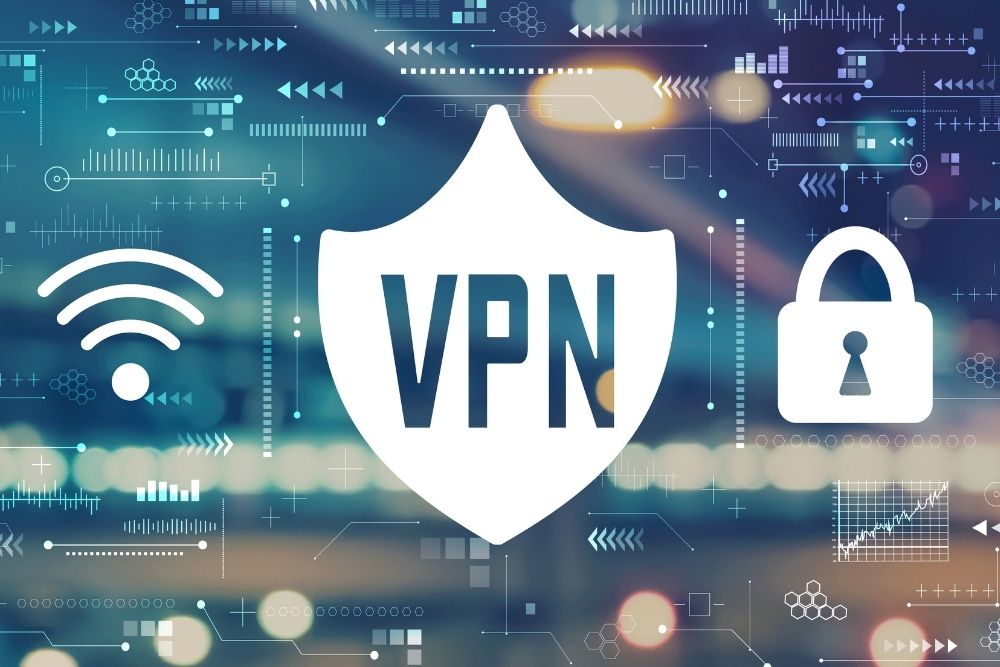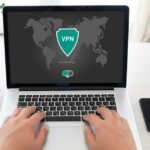The Truth About What You’re Really Up Against When Using a VPN
Most are aware that a nation will have its own intelligence-gathering protocols, but what a lot of people don’t realize is that sometimes, countries work in cahoots, sharing intelligence in order to help one another.

This, in essence, is what the “Eyes alliances” are, and it may seem fairly innocuous, but the truth of the matter is these international coalitions pose a huge risk to your online privacy and data.
I know, I know…scary, right? But, even though these intelligence alliances can and do affect VPN users, I’m not here to induce fear, quite the opposite in fact.
Today, I’m going to be talking through everything you need to know about the “Eyes” nations, and how you can stay safe and anonymous online. Ready to secure your data?
The 5 Eyes Alliance — What Is It?
The true genesis of the 5-Eyes Alliance was the Cold War, during which the US and the Soviet Union played a game of nuclear chicken, striving for ideological dominance after their collaboration to defeat the Nazis in WWII came to an end.
It all started with an intelligence-sharing pact between the US and key allies, the UK. The general idea was that they would work together in order to decrypt secrete Soviet intelligence.
The Cold War would continue for over 40 years, but before it reached its conclusion, Canada, New Zealand, and Australia would join the US and UK in this data clique, thereby forming what is now known as the 5 Eyes intelligence alliance.
Although international wartime teams tend to be a little shaky and purposeless once said conflict has passed, these nations strengthened their bonds over time, and now their prying extends to the online activity of the general public.

Kept secret until 2003, this quintuplet intelligence agency had been operating without our knowing for decades, and even then, the public wasn’t all that sure what they were up to and how they were going about it.
It wasn’t until Edward Snowden famously leaked top-secret NSA documents ten years later that we’d finally grasp the shiver-inducing extent of their “intelligence” gathering.
These groundbreaking documents informed us that, not only were these nations collecting data pertaining to nations considered a risk to national or “global” security, but the online activity of their citizens too — creepy!
Snowden’s leak also unearthed the existence of a further two international intelligence-sharing “supergroups”, if you will.
Known as The 9 Eyes and 14 Eyes, they aren’t quite the fast friends that the original 5 seem to be, but they do involve themselves in this web of cross-border espionage, creating an even wider, more invasive threat to our online privacy.
Let’s Take A Look At The Members Of These Meddling Contingents…
- The 5 Eyes — The US, the UK, Canada, Australia, and New Zealand
- The 9 Eyes — The OG 5 Eyes + France, Denmark, Norway, and Holland
- The 14 Eyes — The 9 Eyes + Belgium, Italy, Germany, Spain, and Sweden
It’s important to note that the 9 and 14 Eyes aren’t discrete groups, rather, extensions of the original 5. They’re not quite as involved and don’t share anywhere near as much data as the 5, but they do widen the gaze of the Eyes significantly.
Unfortunately, that’s not the end of this absolute soap opera of a surveillance situation. There are also 4 countries that have either been caught red-handed or are suspected of helping out the 5, 9, or 14 Eyes as 3rd-party contributors.
Why, you ask? Well, intelligence is a universal currency. When a non-constituent state shares relevant information with the Eyes, they’ll receive important information back as recompense. Exchanging information is also a method of building trust and forming allies, allies that may come to a nation’s aid in the event of a conflict.
The Known Or Suspected 3rd-Party Eyes Nations Are…
- Japan
- Israel
- Singapore
- South Korea
What Does The Existence Of The 5, 9, & 14 Eyes Have To Do With VPN Users?

Now, you’re probably wondering what all this has to do with VPNs. VPNs provide adamantine privacy, right? Even if these organizations were trying to peep your deets, surely they’d just hit a virtual brick wall, a dead-end of anonymity.
Well, I’m sorry to say that VPN providers aren’t always able to oust the snooping of these powerful surveillance bodies. If even one of the constituents manages to break through your VPN veil, they’re liable to share it with other parties — doesn’t sound too private if you ask me!
There are a number of factors you need to consider if you want to keep your details on the down-low when using a VPN, including your physical location, the location of the server employed by your VPN, and the whereabouts of the VPN provider’s HQ. You’ll need to know about the risks of each of these variables if you truly want to stay safe online.
Know Your Enemy
- National Laws — Your first port of call is to research the VPN rules and regulations in your country. They’re usually legal (although not always), but in almost all cases, there will be some finer points stipulating how they should be used. Using a VPN outside the permitted parameters will still be considered illegal.
- VPN HQ — If a VPN provider is registered as a business in one of the Eyes nations, you simply shouldn’t be trusting it with your private information. The governing body of whatever nation the VPN is headquartered in will be able to force access to the information they want, then share it accordingly. Your VPN provider isn’t obliged to inform you of a breach, either, so this could be happening without you knowing.
- Server Location — If you’re using a server that falls under the jurisdiction of one of the Eyes nations, they may be able to pry some information about the end-user.
No-Logging Policies: Essential Protocol
One of the best things you can do to ensure online privacy is to choose a VPN with strict no-logging policies.
Logging is the collection of data based on a user’s online activity. There are a few different levels of logging. Sometimes the information taken down is sensitive, leaving breadcrumbs that tell of a user’s online activity and personal details. Other times, the logged data is more general, including VPN performance statistics.
Although the latter can seem fairly harmless and perhaps just a logical way for the provider to improve their service, it’s always a much safer option to opt for no logging policies whatsoever. It means that if the authorities come a-knockin’, there’s zero information for them to find.
One such success story comes from the amazing ExpressVPN. Turkish authorities were on the hunt for the online information of an ExpressVPN user, yet despite their best efforts, they were unable to uncover even a single piece of identifying data. This is the power of a true no-logging policy!
However, there have been instances in the past when a supposedly no-logging VPN provider has forfeited sensitive information to the authorities, so even if strict no-logging policies are advertised, don’t let your guard down.
Do some research into the provider’s history. If there have been leaks in the past, there will be leaks in the future, and, whatever you do, make sure they’re headquartered outside the Eyes’ jurisdiction!
VPN Jurisdictions Country By Country — Everything You Need To Know

This wouldn’t be the ultimate guide to Eyes nations if it didn’t include a detailed breakdown of VPN rules, regulations, and jurisdictions across the globe, so let’s slow things down, and address each country individually.
Here, we’ll look into the intelligence allegiances, internet laws, censorship codes, and VPN legality of 35 individual countries. I’ve listed them alphabetically, so you can easily skip ahead to the nations that matter to you and your online activity.
Australia
Main Points…
- Australia is a member state of the Eyes
- VPNs are legal in Australia
- Popular VPNs Headquartered In Australia: Celo VPN, VPNSecure.Me
Australia is fairly lenient when it comes to the use of, and access to, the internet, and VPNs are perfectly legal to use; however, as a core member of the 5 Eyes, there’s no way to guarantee your information will be secure.
If your data is stored, or at any point, travels through Australia, the authorities may be able to access it and share it with the other Eyes.
To make matters worse, there have been instances where Australian authorities have forced access to encrypted data logged in accordance with their telecommunications data storage law. This law stipulates that all telecommunication companies must store meta-data for a minimum of two years.
Belarus
Main Points…
- VPNs are illegal in Belarus
VPNs are strictly out of the question in Belarus. If you’re caught using one, you’ll be facing a pretty hefty fine.
Citizens of Belarus do enjoy internet access, but only through the strict filters of the government. Censorship is a big issue in these parts, especially come election season.
Belgium
Main Points…
- Belgium is a member state of the 14 Eyes
- VPNs are legal in Belgium
Belgium isn’t part of the core Eyes clique, but it is one of the 14 Eyes, so it’s best to avoid VPNs headquartered there. Having said that, VPNs are legal to use in Belgium, and the internet is largely uncensored — they believe in freedom of speech, information, and the press.
When laws are broken on the internet, however, Belgium isn’t so understanding. Internet providers will be issued a warrant forcing them to block illegal websites and content.
They also have a zero-tolerance policy when it comes to Holocaust denial and the incitement of hatred. Engaging in either of which online can land you with a prison sentence.
The British Virgin Islands
Main Points…
- The British Virgin Islands are outside the Eyes’ jurisdiction
- VPNs are perfectly legal in the British Virgin Islands
- Popular VPNs Headquartered In The British Virgin Islands: ExpressVPN
You’d be forgiven for thinking that, as these small islands are a territory of the UK, they’d be a poor base for a VPN provider, but thankfully, that’s not the case.
The British Virgin Islands have their own government and legislature, which is a real finger in the Eyes, so to speak, as they’re unable to snoop in this territory.
The absence of telecommunication data retention laws is definitely another feather in the British Virgin Islands’ VPN cap, which is part of the reason that ExpressVPN is widely considered the best of the best.
Bulgaria
Main Points…
- VPNs are legal in Bulgaria
- There are laws in place that protect individuals’ privacy from the government
- Despite these laws, the government may be restricting certain freedoms
- Popular VPNs Headquartered In Bulgaria: VPNArea
With laws protecting freedom of speech, press, and the privacy of citizens from the government, on the surface, Bulgaria seems like an optimal location for VPN operations; however, this may not be the case for much longer.
In certain instances, the country has granted prosecution lawyers access to private electronic data without the express permission of the courts. Furthermore, possible corruption in the government and media is damaging freedom of the press, even to the point that journalists don’t feel safe.
This corruption is yet to compromise the freedom of the internet, but I wouldn’t be surprised if it’s the next target.
Canada
Main Points…
- Canada is a member state of the 5 Eyes
- VPNs are legal in Canada
- Canada champions universal internet access, and freedom of speech and press
- Popular VPNs Headquartered In Canada: BTGuard VPN, Betternet, SurfEasy, TunnelBear, WindScribe
Canada is one of the core members of the 5 Eyes, so it cannot be trusted to handle your data. It’s a real shame, too, as, on all other counts, it’s a fertile foundation for a VPN provider to thrive.
Canada is passionate about maintaining a censorship-free internet service and understands that access to the internet has, by and large, become a human right.
As such, net neutrality ranks high on the government’s agenda, and they’re working on initiatives to ensure all Canadian citizens have some form of internet access. Plus, there are numerous steadfast laws in place to protect freedom of speech and the press. Still…the 5 Eyes membership is a dealbreaker.
China
Main Points…
- China is not a member of the Eyes Intelligence Alliances
- VPNs in China have to be government-approved to class as legal tools
- Popular VPNs Headquartered In China: TurboVPN
China may not be a member of the Eyes, but the government is regarded as the most significant abuser of internet freedoms on the planet, imposing massive financial penalties on telecommunications and tech companies that refuse to comply.
Not only is the internet in China heavily censored and surveyed, the government rules that all data must be localized, real-name registration is required by all internet users, and any company must hand over data when it’s required by the authorities.
For a VPN to function legally within China, it must seek the consent of the government. If you’re found to use an unauthorized VPN, you’ll be hit with some pretty steep fines.
Czech Republic
Main Points…
- VPNs are all legal in the Czech Republic
- The Czech Republic is not a member of the 5, 9, or 14 Eyes
- The Czech Republic supports freedom of expression, bar a few understandable exceptions
- Popular VPNs Headquartered In The Czech Republic: Avast Secureline
The Czech Republic has a respectable outlook on freedom of the internet, speech, and press; however, there are certain things that won’t be tolerated. Hate speech, Holocaust denial, and denial of the crimes against humanity acted out by the Communist regime are not protected by lawful notions of free speech.
ISPs in the Czech Republic will also block content involving anything considered child pornography, as well as access to unregulated overseas lotteries.
The Czech Republic is not a member of the Eyes, and as far as anybody knows, the government isn’t all that concerned with internet surveillance.
Denmark
Main Points…
- Denmark is a key constituent of both the 9 and 14 Eyes intelligence alliances
- There are strong laws in place in Denmark to protect freedoms
- VPNs are legal in Denmark
Denmark is staunchly opposed to censorship and restricting freedom of speech; however, ISPs and the Danish authorities have formed a noble alliance to oust online child pornography.
Besides that and a few torrenting regulations, there are very few government-imposed restrictions on the internet in Denmark, but as a member of the 9 and 14 Eyes, they’re obligated to pass on private data to investigative authorities.
Finland
Main Points…
- All VPNs are legal in Finland
- Finland isn’t held to any Eyes intelligence-sharing pact
- Popular VPNs Headquartered In Finland: F-Secure Freedome
Finland is a safe bet when it comes to VPNs and your private information. Other than a voluntary ban on anything considered child pornography, ISPs can offer users full online freedom.
One small criticism that has been reported is that certain pornographic sites have been erroneously categorized as child pornography, and unlawfully blocked, but that’s a reasonably small, fixable issue.
France
Main Points…
- France is a key member of the 9 and 14 Eyes
- Online surveillance protocols are being ramped up
- All VPNs are legal in France
France celebrates a noble history of protecting freedom of speech and doing away with censorship of almost all kinds. However, in recent years, negative uses of the internet, including fake news and terrorism, have encouraged the government to, at least in part, turn its back on these values.
The government now engages in much more stringent online surveillance practices and shares more with the Eyes than ever before.
Germany
Main Points…
- Germany is a member state of the 14 Eyes intelligence alliance
- Germany’s surveillance initiatives are intensifying
- VPNs are legal in Germany
Unfortunately, when it comes to freedoms, Germany says one thing, then does another. The government has often preached the importance of freedom of speech and privacy, yet continues to pass legislation granting authorities more power to monitor online activity both domestically and overseas.
In fact, the Bundespolizei (the federal police of Germany) have permission to invade an internet user’s privacy whether they’re suspected of taking part in criminal activity or not. Marry this intrusive behavior with their strict data retention laws and Germany’s involvement with the 14 Eyes, and you’ve got one heck of a dystopian society brewing!
But it’s not all bad. Credit where credit’s due…the German government is at the forefront of the efforts to banish hate speech from social media and online media outlets.
Gibraltar
Main Points…
- Gibraltar isn’t a member of the Eyes but can be influenced by the UK
- VPNs are legal in Gibraltar
- Popular VPNs Headquartered In Gibraltar: Buffered, IVPN
Gibraltar is a UK territory, but it doesn’t have the agency of the British Virgin Islands when it comes to governance.
It has its own democratically elected government, but in matters of national security and foreign policy, the UK supersedes the native power structure, which means online surveillance can be ordered against Gibraltar’s will.
Your private information could then be shared among the 14 Eyes, so even though Gibraltar isn’t a member state, it should be viewed as such.
Greece
Main Points…
- VPNs are legal in Greece
- Lots of protection for freedom of speech and press
- No online censorship
- Privacy laws do not apply to online communications
- Popular VPNs Headquartered In Greece: ZoogVPN
Greece is a bit of a mixed bag. On the one hand, it’s all for uncensored freedom of speech, press, and internet, but on the other, none of their laws regarding privacy stretch to the online sphere.
It’s perfectly legal for the Greek police to monitor your online activity and collect your data, regardless of whether you’re suspected of engaging in criminal activity or not. It may not make up one of the Eyes, but Greece should absolutely be avoided when it comes to VPNs.
Hong Kong
Main Points…
- Hong Kong is not a member of the Eyes
- Hong Kong has an autonomous governing body, separate from China’s
- VPNs are legal in Hong Kong
- Online surveillance is common in Hong Kong
- Popular VPNs Headquartered In Hong Kong: BlackVPN, DotVPN, PureVPN, VPN.ht
Much like the British Virgin Islands, Hong Kong is a fully autonomous territory. It may be owned by China, but it’s not subject to the same, strict censorship laws.
That’s not to say there are no online blockades whatsoever. Certain pornography and piracy sites are restricted, but that’s not the real problem here.
The main concern is that online surveillance is the norm in Hong Kong, and, although it’s not an issue presently, many worry that China will tighten its grasp on the territory and transplant its Draconian censorship values.
Iran
Main Points…
- Iran is not a member of any Eyes intelligence-sharing group
- In Iran, VPNs must be approved by the government
- There is very limited internet freedom in Iran
As a response to widespread anti-government protests, the Iranian government has censored and blocked access to numerous online areas, including social media platforms.
Needless to say, it’s not the best location for a VPN to use as a base or even as a server location, especially seeing as a VPN provider must request legality from the government imposing said restrictions.
The law states that anyone caught using an unauthorized VPN will face one year imprisonment, but in reality, this mostly only refers to those vehemently opposing the government.
Israel
Main Points…
- Israel is one of the 3rd party contributors to the 5 Eyes
- Laws protect freedom of speech
- VPNs are legal in Israel
- Popular VPNs Headquartered In Israel: Hola VPN
Freedom of speech is enshrined in law in Israel, and that freedom extends to the internet, which is, by all accounts, left well alone by the authorities.
However, as the Israeli intelligence service is one of the farthest-reaching on the planet, they’re considered the primary 3rd-party contributor to the 5 Eyes, with their intel nurturing a robust relationship with the States.
Italy
Main Points…
- Italy is a member of the 14 Eyes
- Italy enforces one of the longest data retention laws in the world
- Those that can get online enjoy relatively unfiltered internet
- Popular VPNs Headquartered In Italy: AirVPN
Italy supports freedom of speech wholeheartedly, which is why it only blocks access to content that involves child pornography or gambling; however, online privacy is another story.
While it’s not exactly leading the pack in terms of online surveillance, it does have a data retention law that stipulates that telecommunications companies must sit on all data for a minimum of six years.
That gives Italy plenty of time to dig through the archives and find something juicy to share with the other 12 members of the Eyes intelligence alliance.
Japan
Main Points…
- It’s assumed that Japan is a 3rd-party contributor to the 5 Eyes
- Japan has little respect for online privacy
- Japan’s internet is by and large unrestricted
- VPNs are legal in Japan
- Popular VPNs Headquartered In Japan: VPNGate
In Japan, the only internet restriction in place is a voluntary ISP blocking of child pornography, but it drops the ball when it comes to online privacy.
For example, the Japanese supreme court refused to limit the power of police to monitor the online activity of Muslim citizens, regardless of whether they have suspected ties to terrorism — that’s straight-up bigotry, folks!
Furthermore, despite not being an official member of any Eyes intelligence collective, they’ve been known to share their intel and super-advanced surveillance technology with the United States. In light of this, Japan cannot be trusted with your personal information.
Malaysia
Main Points…
- The public have zero rights to online privacy in Malaysia
- Freedom of speech is on the up in Malaysia
- VPNs are legal in Malaysia
- Malaysia is not a member of the Eyes intelligence collectives
- Popular VPNs Headquartered In Malaysia: Hide Me VPN
The Malaysian government does not respect the online privacy of its citizens whatsoever, retaining the power to seize any data they deem necessary. The Fake News Act of 2018 has also restricted certain internet freedoms.
The good news is that, generally speaking, freedom of speech is finally becoming a little more commonplace in Malaysia, creating a safer environment for internet users and journalists.
Netherlands
Main Points…
- The Netherlands is a member of the 9 and 14 Eyes
- VPNs are legal in the Netherlands
- There are very few online restrictions in the Netherlands
- Popular VPNs Headquartered In The Netherlands: Goose VPN
ISPs were recently forced to block The Pirate Bay, but other than that, there are essentially zero online restrictions in the Netherlands, yet that doesn’t excuse their tight-knit relationship to the other nations in the 9 and 14 Eyes.
New Zealand
Main Points…
- New Zealand is a key member of the original 5 Eyes
- VPNs are legal in New Zealand
You have to respect that there are no government-mandated online restrictions in New Zealand, but their heavy involvement with the Eyes is reason enough for us to look elsewhere for our VPNs.
Norway
Main Points…
- Norway is a member of the 9 and 14 Eyes
- VPNs are legal in Norway
- Popular VPNs Headquartered In Norway: Opera VPN
It’s a real shame that Norway is a member of the 9 and 14 Eyes, as Norwegians enjoy access to some of the most untampered-with internet on the planet. The government also preaches transparency, granting the public access to almost all governmental information online.
Panama
Main Points…
- Panama is not an Eyes nation
- Panama offers unrestricted access to the internet
- Constitutional protections for all freedoms
- VPNs are legal in Panama
- Popular VPNs Headquartered In Panama: Nord VPN
Panama is a veritable haven for the VPN provider and user. All forms of expression – online or otherwise – are protected by the constitution, and law enforcement isn’t allowed to snoop around for digital data without the express consent of the courts.
There have been reports that the government has been monitoring people without judicial permission, but this is yet to be officially confirmed.
Romania
Main Points…
- Romania is not part of the Eyes alliance
- Romania refuses to submit to EU data retention laws
- The internet in Romania is largely unrestricted
- VPNs are legal in Romania
- Popular VPNs Headquartered In Romania: CyberGhost, VPN.ac
Romania takes top marks in the VPN world. Other than a total block on child pornography and some regular pornographic content deemed unlawful by the nation, there are no government-mandated online restrictions.
In fact, so dedicated is Romania to the privacy of its people, the government even refuses to adopt the mandatory data retention laws asserted by the European Union.
Actually, “refusing to adopt” isn’t the right phrase…Romania straight-up denounced them, claiming that they’re unconstitutional and damaging to both freedom of expression and privacy — go Romania!
Russia
Main Points…
- Russia is not a member of the Eyes
- VPNs must be approved by the Russian government
- Russia has broad domestic and international surveillance initiatives
- Popular VPNs Headquartered In Russia: Kaspersky
As the 5 Eyes was created to spy on the Soviet Union, Russia is, understandably, not tripping over itself to join the privacy pillaging party, but they’re doing a pretty good job of decimating freedoms on their own.
Much like China, Russia imposes strict limitations on the internet and has no problem invading peoples’ privacy. Only approved VPNs can be used, and a fine will be issued to those caught using illegal alternatives.
San Marino
Main Points…
- San Marino is not counted in the ranks of the Eyes
- San Marino offers unrestricted internet access
- VPNs are legal in San Marino
- The San Marino authorities do not monitor online data
- Popular VPNs Headquartered In San Marino: SpyOFF
San Marino supports freedom of speech, does not restrict internet access, and as far as anybody knows, the authorities are not permitted to rifle through or share your sensitive electronic data — hooray!
Seychelles
Main Points…
- Seychelles plays no part in any intelligence collectives
- The internet in Seychelles is largely unrestricted
- Wi-Fi is free in Seychelles
- Popular VPNs Headquartered In Seychelles: AnonymousVPN, Astrill VPN, BolehVPN, Trust.Zone, VPNTunnel
The authorities in Seychelles come down hard on online defamation, but for the most part, residents of this beautiful archipelago in the Indian Ocean have access to clean, unadulterated internet!
There have been reports of certain political content being blocked, but these are extremely isolated cases, and being that nobody’s privacy was invaded, and information was not shared, Seychelles still qualifies as a fantastic VPN location.
Singapore
Main Points…
- Singapore is a 3rd-party contributor to the 5 Eyes
- The government in Singapore censors the internet heavily
- VPNs are legal in Singapore
- Popular VPNs Headquartered In Singapore: Ivacy
As the official list of restricted sites and content is kept well away from the public, the severity of internet censorship in Singapore is unknown, but it’s a safe bet that it’s heavily filtered by the government.
Online surveillance is also a given, as Singapore often contributes to the 5 Eyes intelligence collective.
South Korea
Main Points…
- South Korea helps out the 5 Eyes when it can
- The South Korean Government restricts internet content
- VPNs are legal in South Korea
While South Korean citizens are permitted far more online autonomy than their northern neighbors, Freedom House still labels the nation “partly free”, as there are a number of online restrictions in place.
It’s true that privacy is a constitutional right, yet the government is exerting significant pressure on ISPs to adopt real-name registration, which is contradictory, to say the least.
South Korea is also a known 3rd-party collaborator of the 5 Eyes, so intelligence sharing is inevitable.
Spain
Main Points…
- Spain is a member of the 14 Eyes
- Privacy and freedom of speech are protected in Spain
- VPNs are legal in Spain
By law, Spanish residents have a right to privacy – on and offline – and freedom of speech, but the nation’s involvement with the 14 Eyes means those laws aren’t exactly absolute.
Sweden
Main Points…
- Sweden is a member of the 14 Eyes
- Sweden is generally against online censorship
- Swedish laws protect freedom of speech
- Swedish authorities must secure a court order to gain access to electronic data
- Popular VPNs Headquartered In Sweden: AzireVPN, FrootVPN, Mullvad, PrivateVPN
There are laws in Sweden that protect freedom of speech and online privacy, and if the law wants to invade your privacy, they have to get the courts to sign off on it first.
It’s a pretty good setup, but, ultimately, Sweden’s proximity to the Eyes means no data is truly secure.
Switzerland
Main Points…
- Switzerland isn’t a member of the Eyes
- Swiss citizens have a constitutional right to privacy and freedom of speech
- Breaching online privacy is against the law in Switzerland
- Popular VPNs Headquartered In Switzerland: Perfect-Privacy, ProtonVPN, VyprVPN
In the fight for freedom and online privacy, Switzerland is a huge ally. All citizens have a constitutional right to privacy and freedom of speech, and breaches of these rights can land someone in serious trouble with the law.
It’s worth noting that the public voted to give the government permission to monitor online activity in extreme circumstances, but this power is used responsibly, and Switzerland does not cooperate with the Eyes.
United Kingdom
Main Points…
- The UK is one of two founding members of the 5 Eyes
- Online surveillance is on the rise in the UK
- Freedom of expression and information is protected in the UK
- VPNs are legal in the UK
- Popular VPNs Headquartered In the UK: HideMyAss, SaferVPN
As far as freedom of speech and access to information goes, the UK does everything right, but things fall apart when it comes to privacy. As a founding member of the 5 Eyes, not only does the nation enjoy access to a broad range of intelligence, government and police surveillance is steadily being ramped up.
The government claims this breach of privacy is the price the public pays in order to fight child abuse and terrorism, but you’d be wise to remain suspicious.
The United States of America
Main Points…
- The USA is the other founding member of the 5 Eyes
- Surveillance has increased in the States
- Freedoms are protected in the US
- VPNs are legal in the US
- Popular VPNs Headquartered In The USA: AceVPN, Hide My IP, HotSpot Shield, IP Vanish, LiquidVPN, Norton Secure VPN, Private Internet Access, Private Tunnel, RA4W VPN, SecureVPN, SlickVPN, StrongVPN, SwitchVPN, Torguard, VPNUnlimited
Freedom lies at the core of the United States’ ethos, so it stands to reason that there’d be comprehensive protections in place to preserve them, and in the past, Internet privacy has been a priority.
Unfortunately, in the light of the numerous recent surveillance controversies, it’s clear that privacy has been superseded by national security and the war on terror, or so we’re told.
However, as a founding member of the 5 Eyes, information was never truly secure in the US to begin with, so why mourn what’s not lost?
Which VPN Based Outside The Eyes Countries Should You Use?
1. ExpressVPN

If we’re talking about the cream of the crop, it all comes down to ExpressVPN. Not only does it have the best tools for infiltrating geo-blocked content, it’s one of the speediest VPNs around.
Headquartered in the British Virgin Islands, there are no prying Eyes to worry about, and even if they try, ExpressVPN’s strict zero-logging policy means there’s nothing to hand over.
Boasting military-grade AES 256 encryption, among other top-notch security features, it’s the Fort Knox of VPNs, and their customer service is second to none!
2. CyberGhostVPN

As we’ve already discussed, Romania is one of the safest places on the planet as far as VPNs are concerned, so you can trust Bucharest-based CyberGhost with your online activity.
It features the same AES 256 encryption as ExpressVPN and a ton of other high-quality security and privacy protocols packed into a super user-friendly interface, making it a fantastic option for VPN novices. CyberGhost’s geo-unblocking skills are pretty sharp too!
3. VyprVPN
VyprVPN is Switzerland’s offering to the big four, and it doesn’t disappoint. Utilizing impregnable encryption by today’s computing standards, it builds upon Switzerland’s dedication to privacy with stead-fast security.
They do engage in some basic logging in order to troubleshoot issues with their service, but all data is erased within 30 days, never to be seen again.
Famous for its patented Chameleon technology capable of circumnavigating government-mandated censorship, it has quickly become a favorite for those looking for true freedom of access to the internet.
4. Trust.Zone
Headquartered in the wonderfully private Seychelles, Trust.Zone is the speed freak’s secret web surfing weapon. Employing WireGuard technology (the fastest protocol around), it keeps VPN-based sluggishness to an absolute minimum.
Despite a bunch of neat security and privacy features, including AES 256 encryption, a killswitch, and geo-unblocking facilities, it’s very reasonably priced, making it a suitable option for those looking to upgrade from a free service.
Final Thoughts
The surveillance practices of both domestic and international authorities are growing ever wider and ever more sophisticated, but luckily for us, so are the VPNs we’ve discussed here today.
We’ve covered a lot of ground here, but if you take just one thing away from this article, it’s that you shouldn’t settle for a VPN based within any of the 14 Eyes countries; it’s just not safe.
International intelligence-sharing obligations trump a nation’s sovereign ideals of privacy, so even if your privacy is constitutionally protected, an “Eyes” member cannot be trusted.
- IPSec vs. OpenVPN: Which Is Better? - December 10, 2022
- How to Turn Off VPN on Mac: A Step-by-Step Guide - December 10, 2022
- What Is a VPN Concentrator and What Does It Do? - December 10, 2022





